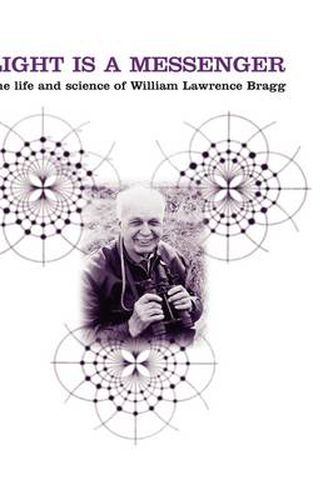Readings Newsletter
Become a Readings Member to make your shopping experience even easier.
Sign in or sign up for free!
You’re not far away from qualifying for FREE standard shipping within Australia
You’ve qualified for FREE standard shipping within Australia
The cart is loading…






Light is a Messenger is the first biography of William Lawrence Bragg, who was only 25 when he won the 1915 Nobel Prize in Physics - the youngest person ever to win a Nobel Prize. It describes how Bragg discovered the use of X-rays to determine the arrangement of atoms in crystals and his pivotal role in developing this technique to the point that structures of the most complex molecules known to Man - the proteins and nucleic acids - could be solved. Although Bragg’s Nobel Prize was for physics, his research profoundly affected chemistry and the new field of molecular biology, of which he became a founding figure. This book explains how these revolutionary scientific events occurred while Bragg struggled to emerge from the shadow of his father, Sir William Bragg, and amidst a career-long rivalry with the brilliant American chemist, Linus Pauling.
$9.00 standard shipping within Australia
FREE standard shipping within Australia for orders over $100.00
Express & International shipping calculated at checkout
Light is a Messenger is the first biography of William Lawrence Bragg, who was only 25 when he won the 1915 Nobel Prize in Physics - the youngest person ever to win a Nobel Prize. It describes how Bragg discovered the use of X-rays to determine the arrangement of atoms in crystals and his pivotal role in developing this technique to the point that structures of the most complex molecules known to Man - the proteins and nucleic acids - could be solved. Although Bragg’s Nobel Prize was for physics, his research profoundly affected chemistry and the new field of molecular biology, of which he became a founding figure. This book explains how these revolutionary scientific events occurred while Bragg struggled to emerge from the shadow of his father, Sir William Bragg, and amidst a career-long rivalry with the brilliant American chemist, Linus Pauling.